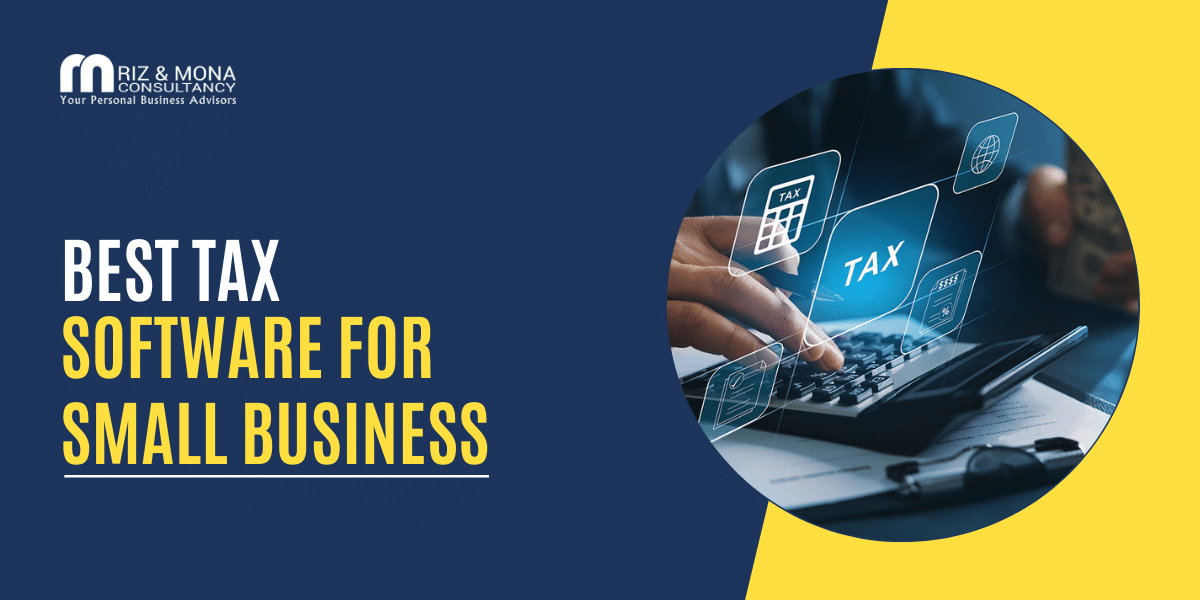What Makes a Tax Software ‘Great’ for Small Businesses?
If you’re a small business owner, tax season isn’t once a year, it’s a year-round responsibility. Choosing the right tax software for small business means fewer errors, faster tax prep, and a lower risk of penalties from the Federal Tax Authority (FTA) or corporate tax missteps.
Here’s what separates good software from a headache:
- VAT-ready: Your software must calculate 5% VAT correctly, apply exemptions, and export tax return files in a format the FTA accepts. Many international tools skip this.
- Arabic invoices: Required for some industries and government clients. Global accounting software like QuickBooks doesn’t always support Arabic templates.
- Local bank feeds: If you can’t import UAE bank statements automatically, you’re stuck doing double work.
- Corporate tax prep: With the new federal tax on profits over AED 375,000, your tool should track your business tax liability accurately, no more guessing from spreadsheets.
- Pricing that grows with you: Some tools lure you in with a low base fee, then charge extra for multiple users, features, or even full-year access to your tax forms.
- Inventory and payroll: These aren’t just features—they’re requirements for product-based businesses and anyone with a team. Good business tax software should include them or integrate well.
- Multi-currency support: If you bill across borders or pay vendors internationally, this is non-negotiable.
- Accountant access: Don’t pay AED 100+ just so your tax professional or bookkeeper can check your numbers. The best platforms include this as standard.
- Data control: Especially for offline tools—can you restore data if your device crashes? Is there a backup?
If your tax preparation software doesn’t handle your actual needs, like deductions, freelancers, sole proprietor taxes, or professional tax use, it’s not the right fit. In the next section, we rank the top options for 2025, based on what real small business tax software should do.
7 Best Tax Software For Small Businesses in 2025
Zoho Books
Zoho Books is one of the few accounting tools that was actually built with the UAE in mind. It’s affordable, fully compliant with local VAT laws, and officially accredited by the Federal Tax Authority. That alone puts it ahead of most global software.
Why it’s on this list:
It’s priced fairly, works for both product and service businesses, and includes tax reports that match the UAE’s exact filing format. If you want clean accounting without paying for features you’ll never use, this is the best tax software for small businesses.
What it does well:
- Tracks UAE VAT, including reverse charges and exempt supplies
- Exports VAT return reports in the correct FTA format
- Supports Arabic text on invoices (interface is English only)
- Manages multi-currency, purchase orders, and inventory in higher-tier plans
- Connects to most major UAE banks for transaction imports
- Integrates with Zoho CRM, Payroll (in select regions), and third-party services
- Includes mobile apps and API access for custom setups
Where it falls short:
- No full Arabic user interface
- Standard plan limits users to three; Premium caps at ten
- Features like advanced inventory and project accounting require upgrades
- Third-party app marketplace is smaller compared to QuickBooks
- Payroll module is separate and not yet supported inside Zoho Books for UAE
Best suited for:
Small businesses that need to stay compliant with UAE tax laws, want VAT return reports without manual work, and prefer a clean interface with minimal learning curve. Ideal for startups, freelancers, online sellers, and any business under 10 users.
Pricing:
Starts around AED 40 per month. The Professional and Premium plans are roughly AED 90 and AED 159 per month when billed annually. A free plan is available for very small businesses with limited turnover. All plans include at least one accountant user at no additional cost. A 14-day trial is also available.
QuickBooks Online
QuickBooks is one of the most widely used accounting platforms in the world. In the UAE, many small business owners choose it because their accountant already works with it. It’s not local-first, but it can be made compliant if you know what you’re doing.
Why it’s on this list:
It covers the basics well: invoicing, expenses, tax reports, and bank feeds. It supports UAE VAT if configured correctly. And because of its popularity, it’s easier to find bookkeepers or finance staff already familiar with the system.
What it does well:
- Tracks 5% VAT, reverse charge, and exempt transactions once tax codes are set up manually
- Connects to most UAE banks for transaction imports
- Offers detailed reports on income, expenses, tax collected, and tax paid
- Includes multi-currency and inventory management in higher plans
- Works across devices with full access on desktop, browser, and mobile app
- Integrates with hundreds of tools, including e-commerce, CRM, and POS systems
Where it falls short:
- Interface is English-only with no Arabic invoice templates
- Payroll is not built in for UAE. You’ll need a third-party tool or workaround
- Pricing increases with each user added. The Plus plan allows five users.
- VAT return must be assembled manually from reports. No built-in FTA return file
- Customer support is mostly email-based. Some UAE users report delays and rely on local consultants instead
Best suited for:
Small business owners who want a globally recognized platform, already use other software that integrates with QuickBooks, or work with a tax professional who prefers it.
Pricing:
Starts at around AED 67 per month. Higher tiers with inventory or multi-currency features go above AED 100. The Plus plan includes up to five users. A 30-day trial is available, and new users may see discounted pricing during promotions. There is no permanently free version.
Wafeq
Wafeq is one of the only accounting tools built from the ground up for the UAE and Saudi markets. It supports Arabic and English, handles VAT returns out of the box, and offers features most global software locks behind third-party add-ons.
Why it’s on this list:
Unlike most platforms that try to adapt to UAE laws, Wafeq was built around them. It’s FTA-accredited, bilingual, and priced with small businesses in mind. For local compliance and Arabic reporting, it’s the most region-specific tool available.
What it does well:
- Generates VAT return files in the exact format required by the UAE’s Federal Tax Authority
- Supports both English and Arabic across the interface and invoices
- Allows unlimited users across all plans with no added cost
- Includes inventory and payroll features in its higher-tier plan
- Manages multiple companies and can consolidate financials across them
- Offers direct support via phone, WhatsApp, and email with local response times
- Built-in audit trails are blockchain-backed for data integrity
- Handles e-invoicing standards required in both UAE and Saudi Arabia
Where it falls short:
- Fewer third-party integrations compared to global platforms
- Newer to the market, so accountants unfamiliar with the region may not know it
- Only available as a cloud solution. No offline mode
- Not well known outside the Middle East. Training may be needed for new hires with global software experience
Best suited for:
Businesses operating in the UAE or KSA that need local tax compliance, Arabic invoicing, and features like payroll or inventory without cobbling together multiple tools. Strong fit for companies that work across subsidiaries or handle multiple business entities.
Pricing:
The Starter plan costs AED 690 per year (about AED 58 per month) and covers basic invoicing, expense tracking, and VAT. The Plus plan is AED 99 per month and adds features like quotations and purchase orders. The Premium plan costs AED 249 per month and includes inventory, payroll, and advanced reporting. All plans allow unlimited users. A 14-day trial is available, and support is included on all tiers.
Xero
Xero is a global accounting platform known for its clean interface, strong reporting, and unlimited user access. It wasn’t built for the UAE, but with the right setup, it works for VAT and cross-border businesses.
Why it’s on this list:
Xero is popular among international firms and remote teams. It allows unlimited users on all plans and handles multi-currency accounting well. If you’re working with clients or suppliers across different countries, this is one of the better options.
What it does well:
- Supports UAE VAT setup, including standard 5% and zero-rated tax codes
- Allows unlimited users with role-based permissions
- Tracks bills, invoices, inventory, projects, and fixed assets
- Handles multi-currency transactions with daily exchange rate updates (Premium plan)
- Offers customizable dashboards and strong reporting tools
- Connects with hundreds of third-party apps for inventory, POS, payroll, and CRM
- Works on desktop and mobile with real-time sync across devices
Where it falls short:
- Starter plan is limited to 20 invoices and 5 bills per month
- No built-in payroll for UAE. Local payroll must be handled separately
- Interface is English-only. Arabic is not supported for menus or system settings
- No direct integration with the FTA. VAT returns must be filed manually
- Customer support is mostly email-based. No phone or live chat
- Initial VAT setup and advanced features may require outside help or an accountant
Best suited for:
Small businesses that need unlimited users, multi-currency support, and flexibility across global operations. Works well for accounting firms, consultancies, and trading companies with international exposure.
Pricing:
Plans start at around AED 80 per month for the Starter plan. The Standard plan is around AED 130, and Premium is about AED 170. Only the Premium plan includes multi-currency handling. A 30-day trial is available. All plans allow unlimited users at no extra cost.
Sage Business Cloud Accounting (Sage)
Sage Business Cloud Accounting is the cloud-based version of Sage’s long-standing accounting software. It brings traditional double-entry accounting and strong financial reporting into a modern cloud format. In the UAE, Sage is well known—especially its desktop product Sage 50. The cloud version is better suited to small businesses that want reliability, strong accounting fundamentals, and optional growth paths to larger Sage systems.
Why it’s on this list:
Sage has long been trusted by accountants and finance teams. The Business Cloud version delivers reliable VAT compliance, detailed financial reports, and core bookkeeping features without flashy distractions.
What it does well:
- Handles full accounting workflows: invoices, quotes, bills, bank reconciliation, chart of accounts
- Includes standard 5% VAT, zero-rated, and exempt categories with VAT return summaries
- Offers a reliable audit trail and good reporting tools for financial analysis
- Supports multiple users (Standard plan and up), each with roles and permissions
- Data is stored securely in the cloud with automated backup
- Can scale into mid-tier Sage systems like Sage 300 or Sage Intacct if needed later
Where it falls short:
- Interface is dated and harder to learn for non-accountants
- Start plan is very limited—no purchase invoice entry, no quotes, no bank feeds
- No built-in payroll for UAE
- No Arabic-language interface or bilingual invoice options
- Customer support is slower unless you use a local Sage consultant
- Limited app ecosystem compared to QuickBooks or Xero
Best suited for:
Small businesses that prioritize strong accounting structure and reliable VAT handling. A good fit if your external accountant already works with Sage.
Pricing:
Start plan is AED 70/month for single users with basic invoicing only.
Standard plan ranges from AED 90–120/month and includes VAT returns, quotes, and multi-user access.
No free tier, but a 30-day trial and occasional discounts are available.
TallyPrime
TallyPrime is the desktop-based version of India’s most widely used accounting software. It’s not cloud-based, but that’s exactly why many UAE trading firms and small shops prefer it. You install it locally, own the license outright, and don’t need constant internet. It’s fast, familiar to many accountants in the region, and covers accounting, VAT, and inventory with depth.
Why it’s on this list:
Tally is favored by businesses that want control, speed, and no monthly fees. It’s especially common in the UAE’s wholesale, distribution, and retail sectors. It handles VAT rules, supports Arabic invoices, and works well offline.
What it does well:
- Covers full accounting: sales, purchases, receipts, journal entries, cost centers
- Handles UAE VAT, including reverse charges and designated zones
- Supports bilingual invoicing (English/Arabic), a must for some sectors
- Built-in inventory: warehouse tracking, batch expiry, stock adjustments
- Allows payroll and manufacturing entries, if needed
- Works fast on modest computers, ideal for high-volume transaction entry
Where it falls short:
- Not cloud-based—remote collaboration is difficult
- Interface is keyboard-driven and outdated by modern standards
- No automatic cloud backup; data safety is the user’s responsibility
- Support comes through local dealers or email; no built-in chat or hotline
- Limited integrations; extending functionality often requires scripting or customization
Best suited for:
Small trading businesses, especially those with experienced accountants who already know Tally. A strong fit if you need offline control and detailed inventory without ongoing subscription costs.
Pricing:
Single-user license is around AED 1,800 (one-time). Multi-user license (LAN) costs AED 5,000+. Optional annual support and upgrades available. Educational version is free for testing.
FreshBooks
FreshBooks is a cloud accounting platform built for self-employed freelancers and service-based small businesses. It focuses on invoicing, time tracking, and expense management. While it doesn’t offer deep tax tools, it’s a good fit for project-based work and client billing.
Why it’s on this list:
FreshBooks is ideal if your business runs on billable hours, recurring invoices, and client projects. It’s simple to set up, easy to use, and has strong mobile support for working on the go.
What it does well:
- Easy invoicing with client branding, recurring schedules, and payment links
- Time tracking tied to projects and client billing
- Expense logging through mobile uploads and some bank feed support
- Multi-currency invoicing with daily exchange rate updates
- Clean financial reports: Profit & Loss, tax summaries, client statements
- Accountant access for shared reviews
- Strong mobile app and North America–based phone support
Where it falls short:
- No VAT return or FTA filing support; all UAE tax compliance must be done manually
- No Arabic interface or bilingual invoicing
- No inventory, purchase orders, or built-in payroll
- Tiered pricing based on number of clients can get expensive for small firms with large customer lists
- Limited collaboration: Designed for solo operators, not teams
Best suited for:
Freelancers, consultants, and agencies that need polished invoicing, time tracking, and client billing—but don’t need advanced accounting or tax filing features.
Pricing:
Lite plan is about AED 55/month for up to 5 clients.
Plus is AED 92/month for up to 50 clients. Premium is AED 183/month for unlimited clients.
All plans include a 30-day free trial. No free tier available.
Need Help Choosing the Right Tax Software for Your Business?
Comparison of Tax Software for UAE Businesses in 2025
| Software | Key Highlights (Revised) | Best For | Fees |
|---|---|---|---|
| Zoho Books | FTA-approved, multi-currency | Startups & SMEs in the UAE | From AED 40/month |
| QuickBooks Online | Global tool, good UX | International users in the UAE | From AED 67/month |
| Wafeq | Arabic UI, inventory | Arabic-speaking local businesses | AED 58–249/month |
| Xero | Unlimited users, global use | Global firms & remote teams | AED 80–170/month |
| Sage Business Cloud | Structured accounting | Firms needing structure | AED 70–120/month |
| TallyPrime | Offline-first, Arabic invoices | Traders & offline businesses | AED 1,800+ (one-time) |
| FreshBooks | Time tracking, simple UX | Freelancers & solo consultants | AED 55–183/month |
FAQS (Frequently Asked Questions)
Which accounting software is officially approved by the UAE FTA for VAT filing?
Zoho Books is the only major cloud software directly accredited by the UAE Federal Tax Authority. Others like TallyPrime and Sage 50 were approved in desktop form but do not offer direct FTA integration in their cloud versions.
Can I issue bilingual invoices (Arabic and English)?
TallyPrime supports bilingual invoices by default. Zoho Books also offers Arabic and English invoice templates. Most others only support English or require manual Arabic input.
Which software supports automated VAT return generation or FTA-ready exports?
Zoho Books and TallyPrime can generate VAT return summaries and audit files that align with FTA requirements. QuickBooks, Xero, and FreshBooks can track VAT but require manual compilation for UAE filing.
What is the best accounting software for e-commerce sellers in the UAE?
Zoho Books (with Zoho Inventory) and QuickBooks Online are strong options. They connect with Shopify, Amazon, and various payment gateways. Tally works well for offline sellers but lacks direct e-commerce integrations.
How secure is my data with these platforms, especially non-local ones?
Zoho, Xero, and QuickBooks use encrypted global servers, usually located in the US, EU, or India. Tally stores data locally on your computer, which some users prefer for control and privacy.
Are there affordable options for startups under the VAT threshold of AED 375,000?
Yes. Zoho Books offers a free plan for such businesses. Xero Starter and FreshBooks Lite are also available, though they come with tighter usage limits. Tally has a one-time license model, which can be cost-effective in the long run.
What are the banking hours in the UAE?
Most bank branches are open from Monday to Friday, typically from 8:00 AM to 3:00 PM. Some mall branches may have extended hours and are open on Saturdays. Islamic banks may have slightly different schedules.
What if I switch accountants, can I export full ledgers or audit trails?
Zoho, QuickBooks, and Xero allow you to export ledgers, journals, and audit logs. Tally can export data in Excel or XML formats. FreshBooks is more limited and works best for solo use.














